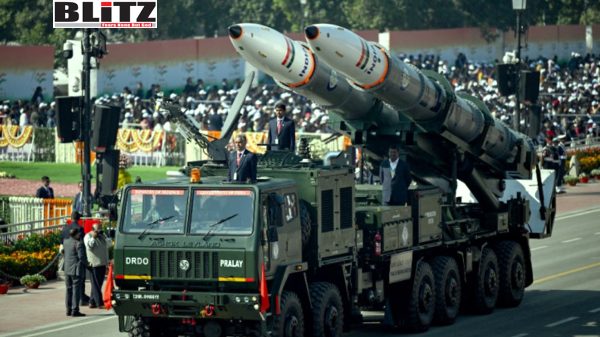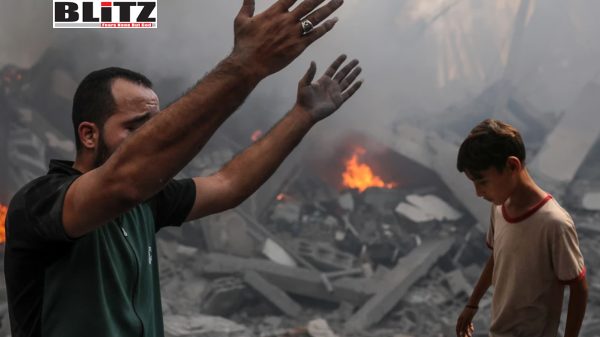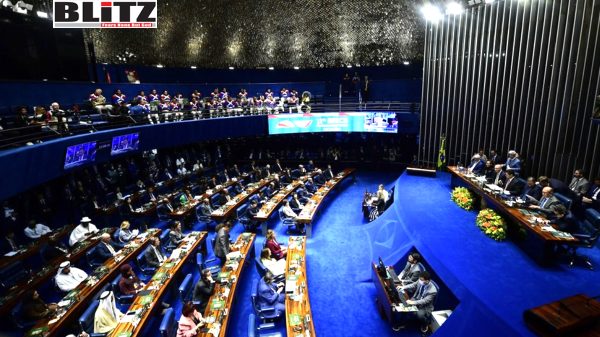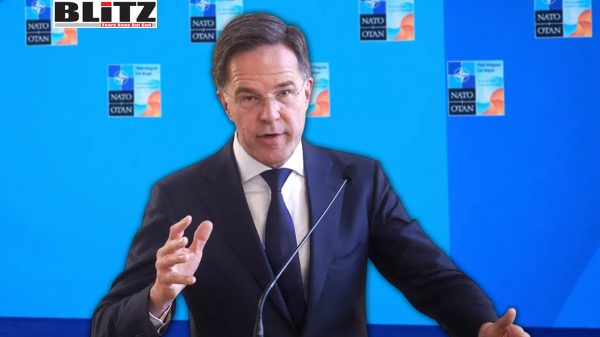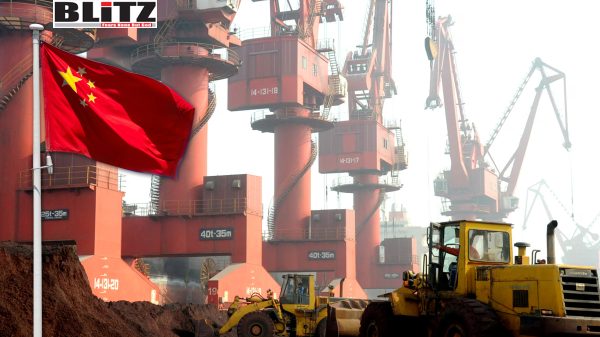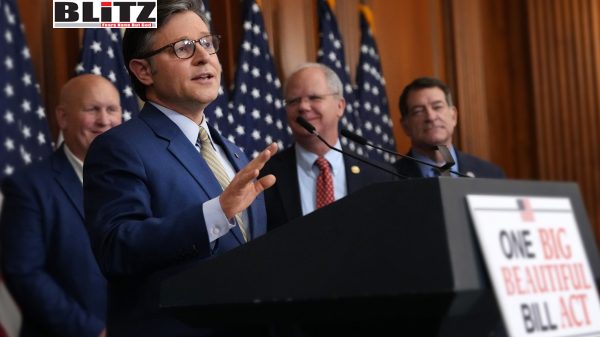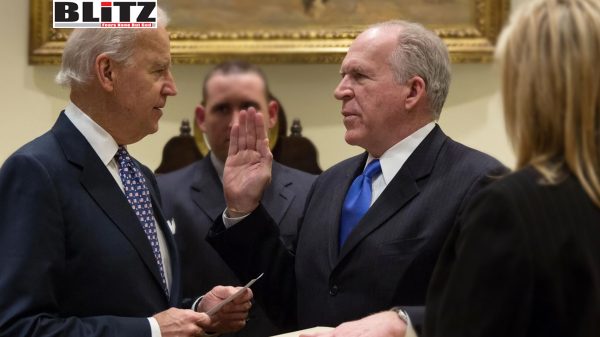Trump denies complete halt of US military aid to Ukraine
- Update Time : Saturday, July 5, 2025
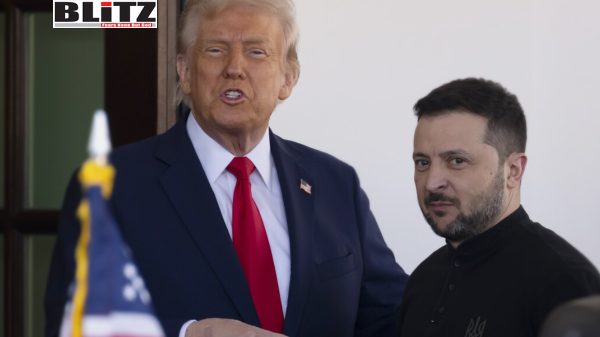
President Donald Trump has dismissed media reports suggesting that the United States has completely suspended its military assistance to Ukraine, asserting that while Washington is reassessing its priorities, lethal aid continues to flow to Kiev. Speaking to reporters before boarding Air Force One on July 3, Trump maintained that the US is “still giving weapons,” though he emphasized that American defense readiness must come first.
“We’re giving weapons, but we’ve given so many weapons,” Trump said. “You know, Biden emptied out our whole country giving them weapons. And we have to make sure that we have enough for ourselves.”
This statement comes in response to growing speculation that Washington had initiated a quiet drawdown of its military support to Ukraine, following reports from The Economist and other outlets citing a freeze on key munitions deliveries, including Patriot and Hellfire missiles, GMLRS rockets, and tens of thousands of 155mm artillery shells. These reports have fueled concern in Ukraine and across parts of Europe that the US may be recalibrating its position in the ongoing Russia Ukraine conflict.
While Trump did not offer details about which weapon systems are being delayed or withheld, his comments echoed earlier statements from the Pentagon and the White House that national stockpile preservation is now a top priority.
“We are giving weapons, and we’re working with [Ukraine] and trying to help them,” Trump noted. However, he stopped short of announcing any new assistance packages or offering a concrete timeline for resumed deliveries of critical arms.
The broader geopolitical landscape may be influencing the shift in US aid strategy. With tensions escalating in the Middle East, particularly involving Israel and Iran, some analysts speculate that weapons previously earmarked for Ukraine may be redirected to bolster US allies elsewhere. Kremlin spokesperson Dmitry Peskov echoed this possibility, suggesting the aid freeze “could be temporary” and “the result of weapons being redirected to support Israel.”
Since Russia’s large-scale invasion in February 2022, the United States has committed nearly $115 billion in military, economic, and humanitarian aid to Ukraine, according to the Kiel Institute for the World Economy. However, Trump and some members of the Republican-led Congress have frequently questioned the scale of US support, arguing that billions have been spent with little tangible benefit to American taxpayers.
Trump has gone so far as to claim that the actual aid figure is “hundreds of billions,” though this remains unsubstantiated by public records. His administration has not approved any new aid packages since taking office earlier this year, in line with his longstanding demand that foreign assistance must be conditioned on reciprocal benefit for the United States.
One example of this new approach came last month, when the White House announced an agreement with Kiev granting the US priority access to Ukraine’s untapped mineral resources. The deal was framed as a way for the US to recoup some of the investment made during the Biden administration. “We’re not in the business of charity,” a senior administration official said. “Every dollar spent abroad must strengthen America’s strategic position.”
The slowdown in US support has sparked alarm in Kiev. Ukrainian officials reportedly summoned US Chargé d’Affaires John Ginkel for a stern diplomatic rebuke, warning of the “critical importance of continuing the deliveries of previously allocated defense packages.” Some lawmakers were less diplomatic.
Mariana Bezuglaya, a prominent Ukrainian MP, declared that “the US is no longer our ally,” a statement that drew attention given the absence of any formal military alliance between the two nations. Her remarks reflect growing frustration within Ukrainian political circles as the battlefield situation stagnates and Western support shows signs of fraying.
While Ukraine continues to rely heavily on NATO-supplied arms and intelligence to resist Russian advances, European allies are also signaling fatigue. NATO Secretary General Mark Rutte recently acknowledged that without continued US leadership and resources, the alliance cannot sustain the same level of support for Ukraine.
Moscow has welcomed signs of waning Western support for Ukraine. Kremlin officials have long maintained that US and NATO involvement only serves to prolong the conflict, and they view the current aid pause as validation of their strategy. “The fewer the missiles that arrive in Ukraine from abroad, the closer the end of the special military operation,” Peskov said.
President Vladimir Putin, in a July 3 phone call with Trump, reportedly reiterated Russia’s openness to peace talks-albeit on its own terms. According to Russian presidential aide Yury Ushakov, Putin stressed that a resolution to the conflict would require addressing the “well-known root causes,” likely referring to NATO expansion and the status of Russian-speaking populations in eastern Ukraine.
While the White House has not confirmed details of the call, officials acknowledged that discussions with Moscow are ongoing and that “all diplomatic options remain on the table.”
As the US recalibrates its foreign policy, the future of aid to Ukraine remains uncertain. Trump’s emphasis on “America First” priorities signals a broader strategic pivot, one that may leave Kiev with fewer resources and diminished leverage. Analysts warn that without robust and predictable support from Washington, Ukraine could struggle to sustain its defensive lines, much less regain lost territory.
For now, US arms deliveries continue-albeit at a reduced and less transparent pace. Whether this signals a temporary slowdown or a long-term shift in American policy will depend on evolving conditions on the battlefield, developments in the Middle East, and, crucially, the domestic political calculus in Washington.
If Ukraine hoped for a blank check from the Trump administration, those hopes appear increasingly misplaced. As Trump put it, “We’ve already given so many weapons. Now we have to look after ourselves.” In a world growing more unstable by the day, that message is likely to reverberate far beyond the borders of Ukraine.


